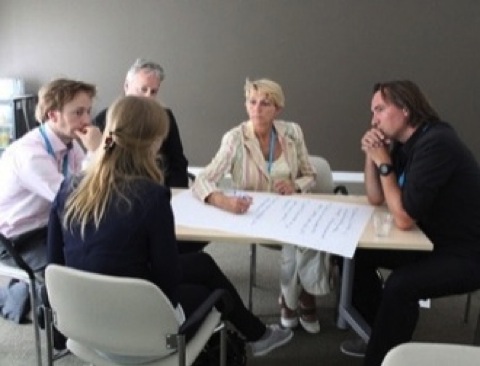Can users evaluate the services they use? Under which conditions is their participation into the evaluation process effective? Is participation a duty or a right? At ISTC the Evaluation Research Group (ERG) starts form these questions before evaluating a service.
We run the risk of simplifying the complexity of social and healthcare evaluation if we do not include the users' point of view. People needs, expectations and resources are in fact fundamental while establishing an evaluation process: it is impossible to gain a comprehensive and exhaustive knowledge of the quality of the service without taking into account the judgement of all the involved stakeholders.
In recent years, evaluation methods starting from users' point of view are becoming increasingly spread. At ISTC the Evaluation Research Group (ERG) has developed a specific expertise to promote the participation of different weak subjects, such as persons with mental disease, minors, detainees. ERG researches show that these users are able to actively contribute to the construction of quality indicators systems. Of course it is not enough to get them involved into a single encounter: it takes time to build the mutual trust needed to promote participatory strategies. The effectiveness of users participation, as well as their empowerment, develops and strengthens along the evaluation process.
But is it always useful to involve users in evaluation? Definitely not. If there is not a true will to take into account user's needs, their involvement becomes counterproductive. For this reason, decision-makers willingness to really change the service is a fundamental condition of participatory evaluation.
Contacts: Antonella Rissotto and Elisa Colì
ISTC Group: Evaluation Research Group
Relevant publications
Spera M., Colì E., Rissotto A. (2011). La Valutazione Partecipata dei Centri diurni per la Salute Mentale nel Comune di Roma: un’esperienza di ricerca – intervento in contesto sociosanitario. Psicologia della salute, vol 2 pp. 173 - 190. Milano: Franco Angeli.
Castelfranchi. C., Rissotto, A., Spera, M., Giachi, L. (2008). Evaluation of daily centres for mental health: the experience of Rome. The 8th European Evaluation Society (EES) International Conference: Building for the future: evaluation in governance, development and progress. Lisbona, 1-3 ottobre.
Colì, E. Rissotto, A. (2011). The role of work in the lives of people with mental health problems. Congrès des cinq continents. Lyon,19-22 Octobre.


